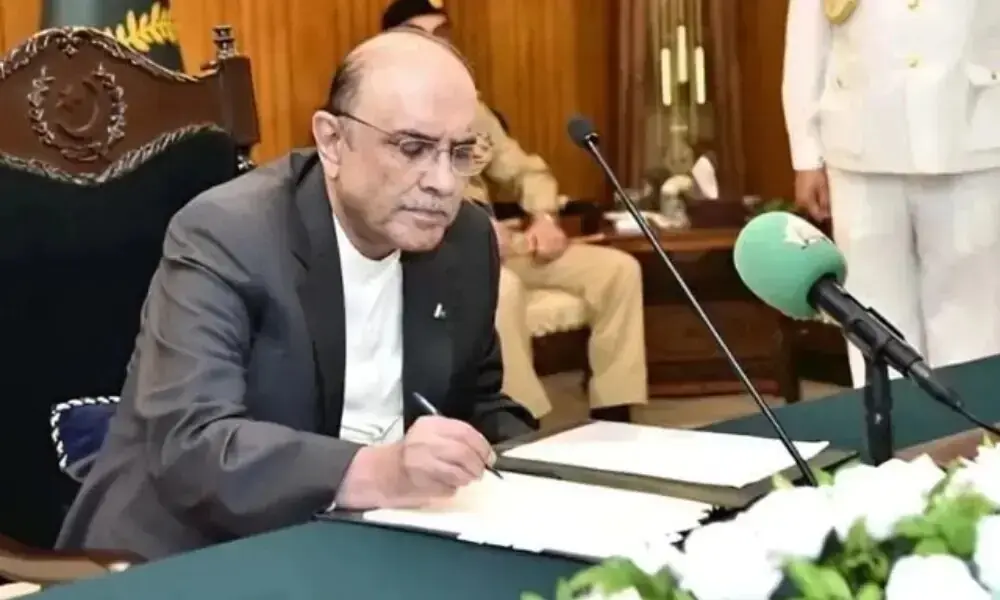ISLAMABAD: President Asif Ali Zardari approved three vital military-related amendment bills, including one that resets the tenure of Chief of the Army Staff (COAS) Field Marshal Asim Munir following his elevation as the country’s first Chief of the Defence Forces (CDF).
The Pakistan Army (Amendment) Bill 2025, the Pakistan Air Force (Amendment) Bill 2025, and the Pakistan Navy (Amendment) Bill 2025 have now formally become part of the Constitution.
The amendments clarify that the five-year tenure of the newly created CDF will begin from the date of his notification of appointment, rather than from the date of assumption of office.
The legislative changes were passed swiftly by Parliament this week without debate, forming part of the wider and controversial 27th Constitutional Amendment.
Furthermore, the 27th Amendment introduces major structural reforms, including the establishment of a Federal Constitutional Court (FCC) and changes to senior military leadership roles.
In this sense, the opposition lawmakers have criticised the process and substance of the amendments, arguing that the measures were expedited without adequate consultation.
Moreover, the legislation also updates Section 8A of the Pakistan Army Act 1952, specifying that, for the first dual appointment of the army chief as CDF, the five-year tenure will start from the date of the official notification.
Additionally, the prime minister is empowered to appoint the commander of the National Strategic Command from among serving generals, on the recommendation of the CDF, for a three-year term.
The prime minister may also reappoint or extend the commander’s tenure in three-year increments, again based on the CDF’s advice.
Meanwhile, the amendments state that decisions regarding the commander’s appointment, reappointment, or extension cannot be challenged in any court.
They also allow the federal government, on the CDF’s recommendation, to authorise a vice chief or deputy chief of army staff to exercise specified powers of the army chief.
The government maintains that the amendments are essential for institutional clarity, and critics continue to question the pace and transparency of the reform process.





